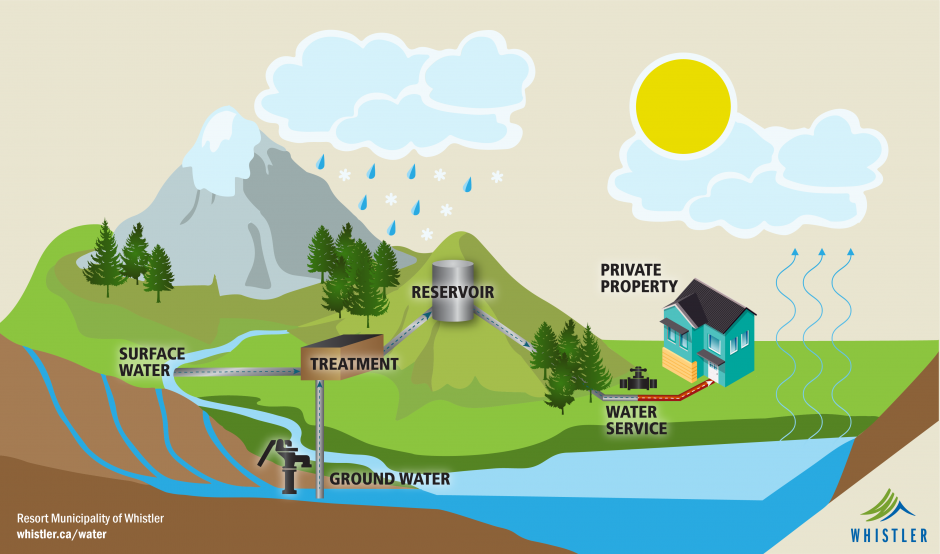Remember to flush your taps!
Whistler’s water meets all of the conditions set out by Vancouver Coastal Health in our Drinking Water Permit. Like many other communities in Canada, the pH of some source water is naturally low.
Once water is delivered to homes and businesses, it is the responsibility of property owners to manage it. If water has not been used for a while, levels of dissolved metals may increase.
To reduce exposure to metals, Vancouver Coastal Health recommends freshening tap water by running it until cold.
Dissolved metals can come from:
- Faucets – Fixtures inside your home may contain lead
- Copper Pipe with Lead solder g – Prior to 1989 solder contained high lead levels.
Even though it is important to save water, remember to run taps until the water comes out cold before drinking. This makes sure the water you are drinking is the same quality as the water that is delivered to your home.
You can also install and maintain a water filter.
Water Quality Guidelines
As requested in the 2017 Vancouver Coastal Health (VCH) Inspection Report, the RMOW has been reviewing water stability and potential water conditioning with a thoughtful, evidence-based approach. Details are outlined in the May 2018 Council Report and the May 2019 Committee of the Whole Presentation. An update to Council is expected to be presented in 2020.
Testing your water
Should you wish to have your water tested independently, you can contact one of several labs in the lower mainland that can advise you on how these services can be provided such as:
- Caro Analytical Services
- Maxxam Analytics
- ALS Environmental
- Exova Canada
To reduce single-use plastic waste, everyone in Whistler is encouraged to choose flushed tap water over bottled water
Whistler’s municipal drinking water meets the requirements for providing safe drinking water that are set out for us by Vancouver Coastal Health. Drinking water across British Columbia ranks among the safest drinking water in the world.
Water quality is tested hundreds of times per year at over 40 sites in our water system. These sample sites are tested for E. coli and total coliform, pH, residual chlorine, temperature and turbidity at least once every two weeks. Overall chemistry is tested annually at all sources and at two random distribution points. All bacteriological samples are sent to the BC Ministry of Health Centre for Disease Control laboratory for analysis.
Drinking water evaluations are posted on Vancouver Coastal Health’s website, and the Whistler’s Annual Drinking Water report is posted on this web page.
Find a water bottle fill station
Plastic water bottles are single-use waste, meaning they are used once then discarded. These items may not be reused or recycled, and end up in the landfill.
Water reports
Related Files
The RMOW prepares annual water system reports that summarize the water system’s performance including usage and quality. Whistler water consistently receives low hazard ratings from Vancouver Coastal Health and the systems consistently meet all conditions of the Permits to Operate. Please see the annual reports below.
The operation, maintenance and capital replacement of the system is funded by the Water Utility Fund.
Where Whistler’s water comes from



